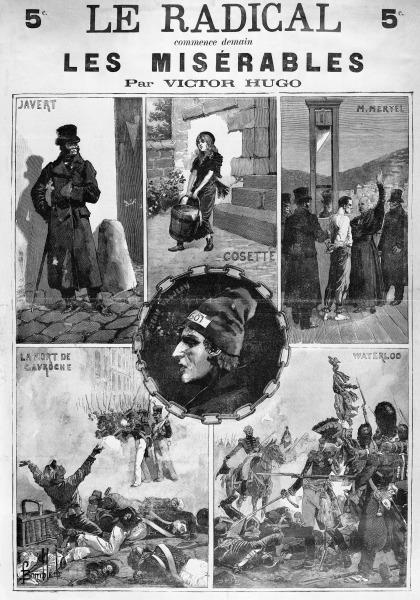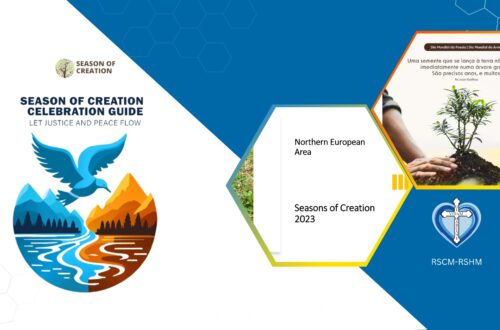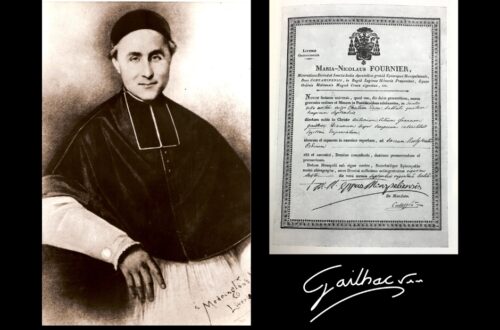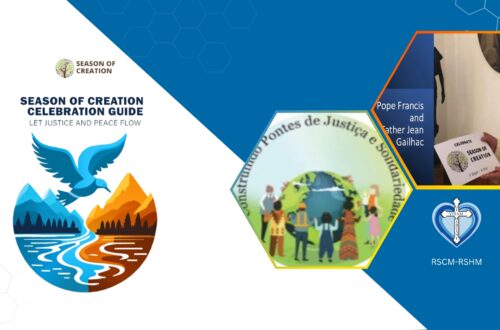Heritage and Spirituality Group
Sisters Veronica Brand and Rosinha Pereira, RSHM
Historical context XIXth century France
CHOLERA – In 1849, a second major outbreak occurred in France……Cholera hit Ireland in 1849 and killed many of the Irish Famine survivors, already weakened by starvation and fever.[10] In 1849, cholera claimed 5,308 lives in the major port city of Liverpool, England, an embarkation point for immigrants to North America, and 1,834 in Hull, England.[11] In 1849, a second major outbreak occurred in Paris. In just a few months, the disease killed 20,000 Parisians and over 100,000 people in the country as awhole.
https://en.wikipedia.org/wiki/1846%E2%80%931860_cholera_pandemic
3rd CHOLERA pandemic: 1852 – 1859
Much like COVID-19 today, cholera exacerbated economic and social inequality. In the early 1830s, the Industrial Revolution drew large numbers of poor workers to Paris, where they lived in squalid conditions in the heart of the city—the densely packed neighborhoods around Notre-Dame Cathedral, the Tuileries Palace and the former site of the Bastille. These slums became breeding grounds for cholera, a bacterial infection that was spread by poor sanitation. Since, then as now, many wealthy residents fled the city at the first sign of the outbreak, the disease seemed to target the poor. Soon class tensions reached, quite literally, a fever pitch. The rich blamed the poor for spreading the disease, while the poor thought that the rich were trying to poison them. In this climate of fear and animosity, the suffering Parisians directed their anger at the government.
Taken from https://time.com/5837393/paris-cholera-lessons/
The Conscience Of The City: Victor Hugo’s Vision of Sewage, Sanitation, and the Social Order in Paris
Posted By: JHoyton: November 28, 2018In: News
Print Email
“The sewer is the conscience of the city.”
 So Victor Hugo wrote in Les Misérables. Condensations and dramatizations of Hugo’s greatest story usually leave out his lengthy reflections on sewage, but he cared enough about the subject to introduce it into both his great novels dealing with revolution and the social order. In Hugo’s Quatre-Vingt-Treize, which dealt with the great French Revolution, the dying hero Gauvain uses some of his last words to reflect on the irresponsibility of discarding human waste and the great improvement to liberty and food for all which would be obtained if only that waste were responsibly used as fertilizer.
So Victor Hugo wrote in Les Misérables. Condensations and dramatizations of Hugo’s greatest story usually leave out his lengthy reflections on sewage, but he cared enough about the subject to introduce it into both his great novels dealing with revolution and the social order. In Hugo’s Quatre-Vingt-Treize, which dealt with the great French Revolution, the dying hero Gauvain uses some of his last words to reflect on the irresponsibility of discarding human waste and the great improvement to liberty and food for all which would be obtained if only that waste were responsibly used as fertilizer.
In Les Misérables, Hugo spends several chapters reflecting on the sewer’s many meanings and effects. He describes it as a source of diseases and a drain of valuable resources, but also as an honest place where social pretensions are stripped away; as a haunt of gangsters and predators, but also as a refuge for revolutionaries and humanitarians. He also uses the mismanagement of sewage as a metaphor for how his society discarded and stigmatized good people who were poor or who had run afoul of the law, making it harder for them to help society and giving them motives to attack it. Hugo’s interest in sewers was not merely a bizarre personal obsession.
One of the recognized causes of the actual 1832 insurrection (which he dramatized in Les Misérables) was disgust with the mismanagement of the Paris sewers. The cholera epidemic of 1832 killed twenty thousand Parisians, especially in overcrowded areas. The sickness was widely blamed on the foul odors arising from the clogged and inadequate sewer system. While this theory didn’t get the mechanism of transmission right, water fouled by sewage was likely a major source of cholera and other diseases.
Wikipedia…The epidemic reached Great Britain in December 1831, appearing in Sunderland, where it was carried by passengers on a ship from the Baltic. It also appeared in Gateshead and Newcastle. In London, the disease claimed 6,536 victims; in Paris, 20,000 died (out of a population of 650,000), with about 100,000 deaths in all of France.[9
French Article: AU-DELA DE NOUS, RSCM…
“Aujourd’hui comme hier, les pandémies exacerbent les inégalités économiques et sociales”
Sœurs Veronica et Rozinha- rscm










